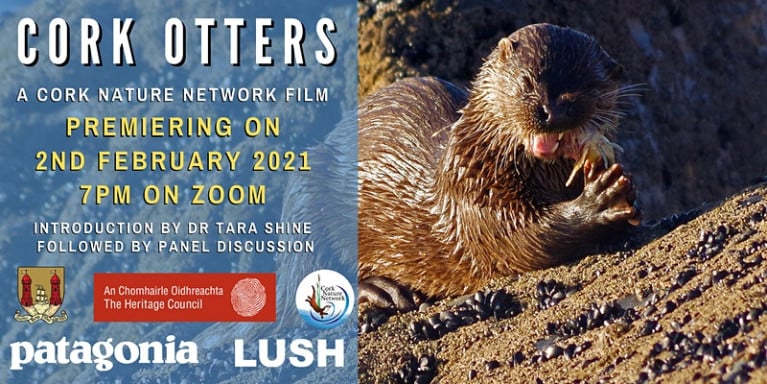Displaying items by tag: Otters
Short Film on Cork’s Otters to Have Online Premiere
The otters of Cork get a tribute in a new documentary that gets its online premiere this Tuesday 2 February at 7pm.
Made by the Cork Nature Network with funds from The Heritage Council among others, Cork Otters explores the lives of these elusive marine wildlife residents of the River Lee.
Free tickets for this Zoom screening — featuring a discussion and Q&A with an expert panel — are already booked out. But you can get in touch to enquire about the waiting list in case more viewing spots become available.
Seal Pup Found On Galway Street Is On The Mend
#MarineWildlife - 'Poison Ivy' the seal pup is now in good hands after she was found on the streets of Galway by council workers earlier this month.
As the Galway Independent reports, the young seal was discovered on the footpath in Salthill by litter collectors and was cared for locally by vets, members of the public and volunteers with Galway & Claddagh Swan Rescue.
She has since been transferred to the Seal Rescue Ireland sanctuary in Wexford, where she is said to be thriving after treatment for dehydration and malnourishment, an eye infection and a number of infected wounds.
It's thought that since she still had half of her lanugo fur coat, she was less than three weeks' old when found – "so there is a good chance that little Poison Ivy was separated from her mom too early," said the sanctuary's manager Meadow Greenwood.
As for the name? It's part of a comic book theme at the sanctuary, which earlier in the year played host to the like of Blackbird, a seal rescued in Co Louth, and Mystique from Co Mayo, according to the Gorey Guardian.
In other marine wildlife news, there has been anger in Northern Ireland after an otter was found killed in a trap on a riverbank in Co Antrim last weekend.
According to the Belfast Telegraph, the PSNI is investigating the incident on the banks of the Sixmilewater River at Dunadry as the placement of the trap "suggests a deliberate attempt to target the otter" – a protected species at EU level.
And as a member of the Antrim and District Angling Association alleges, whether or not the trap itself is legal is irrelevant as its placement was not.
"There is a residential development backing onto that area ... A cat or a dog or a young child could have been caught in that trap."
The Belfast Telegraph has more on the story HERE.
























































